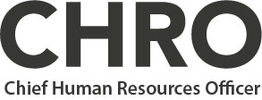7 Steps To Effective Performance Management That Boosts Productivity

By Steffen Maier
It’s a well-known phenomenon that the traditional performance reviews neither help employees
to develop nor businesses to grow. Recent research from Deloitte* showed that 58% of
companies thinks that their current performance management process is a waste of time.
Hence, it might be valuable to share some steps you can take to make your performance
management processes useful and effective to increase productivity and engagement.
Simplify the process
Adoption is the key to successful feedback processes. You miss out a lot of feedback between
people if your tools don’t allow simple usage. This leaves you without sufficient data to help your
people in their development. Make your process as simple as possible to get people doing it.
Ignore the advanced features in performance management software, rather focus on an easy
way to enable feedback interaction between co-workers. Making use of mobile technology is a
great way to achieve this.
Use Performance Management to build skills
Focus on implementing flexible performance conversations aimed at providing employees at all
levels with practical steps they can take in order to improve themselves. Ask yourself what skills
are necessary for each person to succeed in her job. It’s no secret that developing these skills
will directly increase the performance of your organization. Communicate these skills clearly and
make the performance and long-term development visible to identify and discuss opportunities
for improvement.
“58% of companies thinks that their current performance management
process is a waste of time”
— Deloitte*
Plan regular 1-on-1 meetings
Periodical “informal” performance conversations are a very effective way to increase
engagement and performance of employees. Schedule regular 1-on-1 meetings between
managers and individual team members. Use the feedback the employee received and the
documented progress as input for the conversation. To get most out of the meetings it’s
recommended to dedicate a meeting to specific skills, formulate action steps to realize
improvement and reflect the results during the following meeting. Finally, these meetings are a
powerful way to bring feedback and your performance management processes to life in your
organization.
Set clear development goals
Formulating specific goals helps employees to focus. There are several tools that allow you to
set both development goals as well as business goals. Help employees to formulate specific
goals with a clear way to measure the outcome. This creates purpose and transparency. Most
often development goals are set on a quarterly base.
Teach managers to give better feedback
Managers often fail to give useful feedback to employees. This leads to employees being left
behind clueless rather than that it drives their performance. We often hear two reasons for that.
Managers lack insights in the skills and performance of their team and secondly that they are
never been taught how and when to give feedback. Enable your management to drive the
performance of their teams by teaching them how to deal with feedback and provide them with
tools to gain insights in the skills, performance and coaching needs of their teams.
Make your performance process as simple as
possible to get people doing it.
De-couple compensation and development
In order to stimulate honest and useful feedback between peers, development should be
separate from compensation. Consider finding other metrics for compensation, for instance how
difficult it would be to replace this person in the company. Another example is to reward
coaching based on how much a person contributes to learning and development of other people
and the organization. Besides, find ways how to reward your people without regarding money by
offering growth opportunities.
Coach everyone and stimulate peer coaching
Show everyone how they contribute to organizational success and make sure all your people
know what it takes to reach the next level. Hold everyone accountable, but help everyone to
plan her development and give everyone coaching and training to improve.
There are tools that allow peers to coach each other by providing feedback. As
organization you can stimulate a social culture of knowledge sharing by clearly communicating
the benefits. Reward those who are actively coaching others and provide simple tools to identify
coaching needs.
*Global Human Capital Trends 2014: Engaging the 21st-century workforce
—
Steffen Maier is the co-founder of impraise an innovative web-based and mobile solution for actionable, timely feedback at work. Based in San Francisco and Amsterdam, Impraise turns tedious annual performance reviews into an easy process by enabling users to give and receive valuable feedback in real-time and when it’s most helpful.














